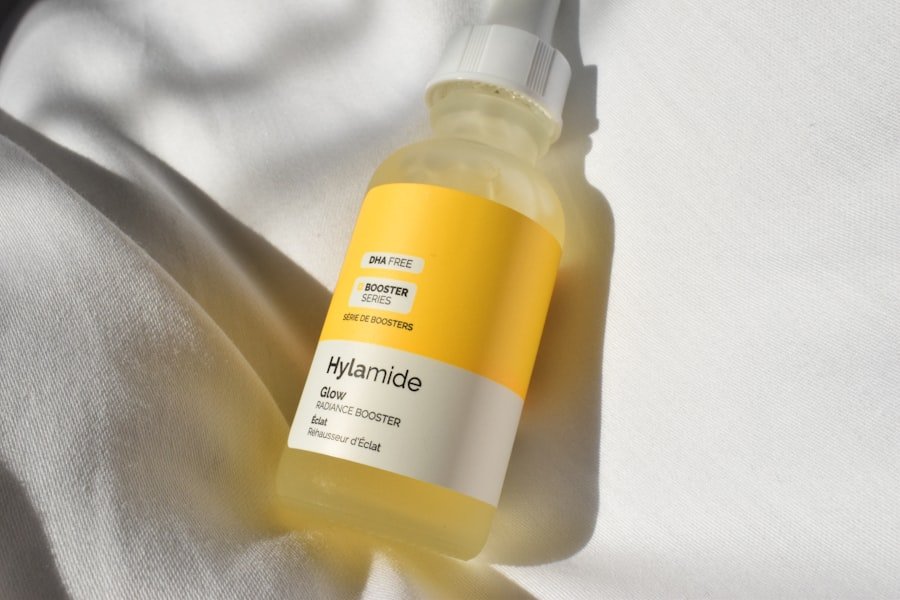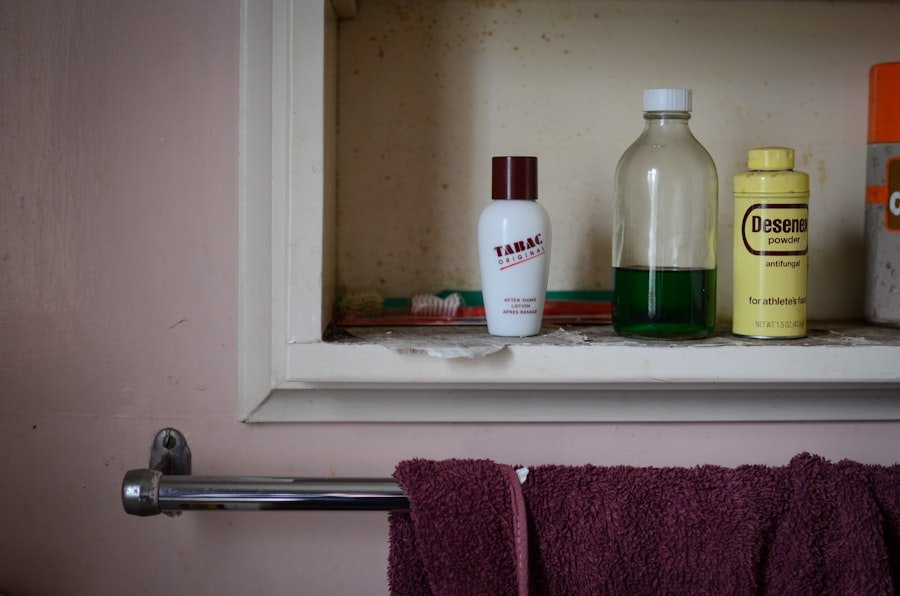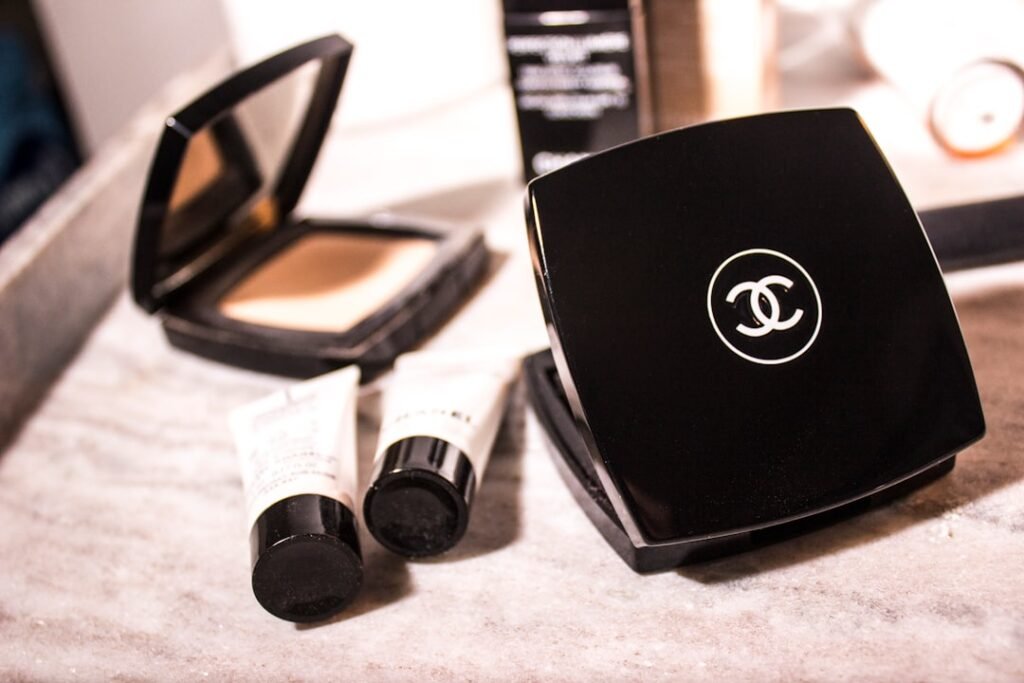Eczema, a chronic skin condition characterized by inflammation, redness, and itching, can leave behind scars that serve as a constant reminder of our struggles with this ailment. These scars can vary in appearance and severity, often depending on the duration and intensity of the eczema flare-ups we experience. Understanding eczema scars is crucial for us as we navigate the emotional and physical implications of living with this condition.
The scars can manifest as discoloration, textural changes, or even deep indentations in the skin, which can affect our self-esteem and body image. As we delve deeper into the nature of eczema scars, we realize that they are not merely superficial blemishes. They represent a history of our skin’s battle against inflammation and irritation.
The healing process can be complex, and the scars may take time to fade. This understanding encourages us to approach our skin health with patience and compassion, recognizing that healing is a journey rather than a destination. By acknowledging the emotional weight of these scars, we can better equip ourselves to seek effective treatments and support.
Key Takeaways
- Eczema scars are the result of the skin’s healing process after eczema flare-ups, and can be distressing for those affected.
- Causes of eczema scars include scratching, inflammation, and prolonged eczema flare-ups, which can lead to skin damage and scarring.
- Types of eczema scars include hyperpigmentation, hypopigmentation, and atrophic or raised scars, each requiring different treatment approaches.
- Treatment options for eczema scars include topical creams, laser therapy, and steroid injections, depending on the severity and type of scars.
- Over-the-counter remedies for eczema scars may include moisturizers, silicone gel sheets, and vitamin E oil, which can help improve the appearance of scars.
Causes of Eczema Scars
Exacerbating Factors
Additionally, prolonged exposure to irritants or allergens can exacerbate our condition, leading to more intense flare-ups and, consequently, a higher likelihood of scarring. Moreover, the type of eczema we have can also influence the development of scars. For instance, individuals with atopic dermatitis may experience more severe symptoms compared to those with contact dermatitis.
The Impact of Chronic Eczema
The chronic nature of atopic dermatitis often leads to repeated cycles of inflammation and healing, increasing the risk of scarring over time.
Taking Control
Understanding these causes allows us to take proactive steps in managing our eczema and minimizing the potential for scarring.
Types of Eczema Scars

Eczema scars can be categorized into several types, each with distinct characteristics that reflect our skin’s healing process. One common type is post-inflammatory hyperpigmentation, which appears as darkened patches on the skin following an eczema flare-up. This type of scar is often temporary but can linger for months or even years if not properly managed.
Another type is atrophic scars, which are characterized by depressions in the skin’s surface due to loss of collagen during the healing process. These scars can be more challenging to treat and may require specialized interventions. In contrast, hypertrophic scars may develop as raised areas on the skin where excessive collagen has formed during healing.
While less common in eczema patients, these scars can still occur and may require different treatment approaches. By familiarizing ourselves with these types of scars, we can better communicate our concerns with healthcare providers and tailor our treatment strategies accordingly.
Treatment Options for Eczema Scars
When it comes to treating eczema scars, we have a variety of options at our disposal. The first step often involves addressing the underlying eczema itself to prevent further flare-ups and scarring. This may include topical treatments such as corticosteroids or calcineurin inhibitors that help reduce inflammation and promote healing.
By managing our eczema effectively, we can create a more favorable environment for our skin to recover without additional damage. In addition to managing active eczema, we can explore various cosmetic treatments aimed at reducing the appearance of existing scars. Options such as chemical peels, microdermabrasion, and laser therapy have gained popularity for their ability to improve skin texture and tone.
These treatments work by promoting cell turnover and stimulating collagen production, ultimately leading to smoother skin. Consulting with a dermatologist can help us determine which treatment options are best suited for our specific scar types and skin conditions.
Over-the-Counter Remedies for Eczema Scars
For those of us seeking immediate relief from eczema scars without a prescription, over-the-counter remedies can be a valuable resource. Many topical products are designed to improve skin texture and reduce discoloration associated with scarring. Ingredients such as silicone gel sheets or creams can help flatten raised scars while also providing hydration to the affected area.
These products are often easy to apply and can be incorporated into our daily skincare routines. Additionally, we may find that products containing ingredients like vitamin E or hyaluronic acid can aid in scar healing by promoting moisture retention and skin elasticity. While these remedies may not provide miraculous results overnight, consistent use over time can lead to noticeable improvements in the appearance of our scars.
As we explore these options, it’s essential to remain patient and realistic about our expectations.
Prescription Treatments for Eczema Scars

Prescription-Strength Solutions
For instance, prescription-strength retinoids can enhance cell turnover and improve skin texture by promoting collagen production. These solutions can be particularly effective in addressing eczema scars.
Targeted Procedures
In more severe cases, dermatologists might suggest procedures such as corticosteroid injections or laser treatments that target scar tissue directly. These interventions can significantly reduce the appearance of both hypertrophic and atrophic scars by breaking down excess collagen or stimulating new skin growth.
Comprehensive Treatment Plans
By working closely with a healthcare professional, we can develop a comprehensive treatment plan that addresses both our eczema and its lingering effects on our skin.
Natural Remedies for Eczema Scars
For those of us who prefer a more holistic approach to skincare, natural remedies can offer gentle alternatives for managing eczema scars. Ingredients like aloe vera have long been celebrated for their soothing properties and ability to promote healing. Applying pure aloe vera gel directly to scarred areas may help reduce inflammation while providing hydration.
Another popular natural remedy is honey, known for its antibacterial properties and ability to promote wound healing. Incorporating honey into our skincare routine—whether through direct application or as part of a homemade mask—can aid in scar reduction while nourishing the skin. While natural remedies may not yield immediate results, they can complement other treatments and contribute positively to our overall skincare regimen.
Preventing Eczema Scars
Prevention is always better than cure, especially when it comes to managing eczema scars. One of the most effective strategies we can adopt is minimizing scratching during flare-ups.
Keeping our nails trimmed short and wearing gloves at night can help reduce the risk of damaging our skin further.
Additionally, employing techniques such as cold compresses or anti-itch creams can alleviate discomfort without resorting to scratching. Another preventive measure involves maintaining proper skincare routines that focus on hydration and barrier repair. Using gentle cleansers and moisturizers specifically formulated for sensitive skin can help keep our skin barrier intact, reducing the likelihood of flare-ups that lead to scarring.
By prioritizing prevention, we empower ourselves to take control of our skin health and minimize the impact of eczema on our lives.
Managing Eczema to Prevent Scarring
Effective management of eczema is crucial in preventing scarring from occurring in the first place. This involves identifying triggers that exacerbate our condition—be it certain foods, environmental factors, or stress—and taking proactive steps to avoid them. Keeping a detailed diary of flare-ups can help us pinpoint patterns and make informed decisions about our lifestyle choices.
In addition to avoiding triggers, we should also prioritize regular follow-ups with healthcare providers who specialize in dermatology or allergy management. They can provide personalized advice on treatment plans tailored to our unique needs and help us stay informed about new therapies or advancements in eczema care. By actively managing our condition, we not only reduce the risk of scarring but also improve our overall quality of life.
Seeking Professional Help for Eczema Scars
When it comes to dealing with persistent eczema scars that affect our self-esteem or quality of life, seeking professional help is essential. Dermatologists possess the expertise needed to assess our individual situations accurately and recommend appropriate treatment options based on the type and severity of our scars. They can also provide guidance on combining various therapies for optimal results.
Moreover, mental health support should not be overlooked in this journey.
Living with visible scars can take an emotional toll on us; therefore, speaking with a therapist or counselor who understands the psychological impact of chronic skin conditions can be beneficial.
By addressing both physical and emotional aspects of living with eczema scars, we create a holistic approach that fosters healing from within.
Living with Eczema Scars
Living with eczema scars is undoubtedly challenging; however, it is essential for us to remember that these marks do not define who we are or diminish our worth. Each scar tells a story—a testament to resilience in the face of adversity—and embracing this narrative allows us to cultivate self-acceptance and compassion towards ourselves. As we navigate through various treatment options and preventive measures, let us remain hopeful about the future while acknowledging the journey we’ve undertaken thus far.
With patience, persistence, and support from healthcare professionals and loved ones alike, we can learn to manage both our eczema and its lasting effects on our skin effectively. Ultimately, living well with eczema scars means embracing our unique experiences while striving for healthier skin and a brighter outlook on life.
If you are concerned about skin issues such as eczema scars, it is important to seek the expertise of a dermatologist. A related article on the importance of seeing a dermatologist and getting a full skin check can provide valuable information on how to properly address skin concerns. By visiting a dermatologist, you can receive personalized treatment options and guidance on how to prevent and manage conditions like eczema scars. To learn more about acne and its treatment, as well as how to get rid of dark spots and hyperpigmentation, check out these informative articles: What is Acne and How is it Treated? and How Do I Get Rid of Dark Spots and Hyperpigmentation?
FAQs
What causes eczema scars?
Eczema scars are caused by the skin’s natural healing process after the skin has been damaged by eczema. The constant scratching and inflammation associated with eczema can lead to the formation of scars.
How can eczema scars be treated?
Eczema scars can be treated with various methods including topical creams, laser therapy, and microdermabrasion. It is important to consult a dermatologist to determine the best treatment option for individual cases.
Can eczema scars be prevented?
Preventing eczema scars involves managing and controlling the underlying eczema condition. This includes keeping the skin moisturized, avoiding triggers, and seeking treatment for eczema flare-ups.
Are there any home remedies for eczema scars?
Some home remedies for eczema scars include using natural oils such as coconut oil or vitamin E oil, applying aloe vera gel, and using honey as a natural moisturizer. However, it is important to consult a healthcare professional before trying any home remedies.


